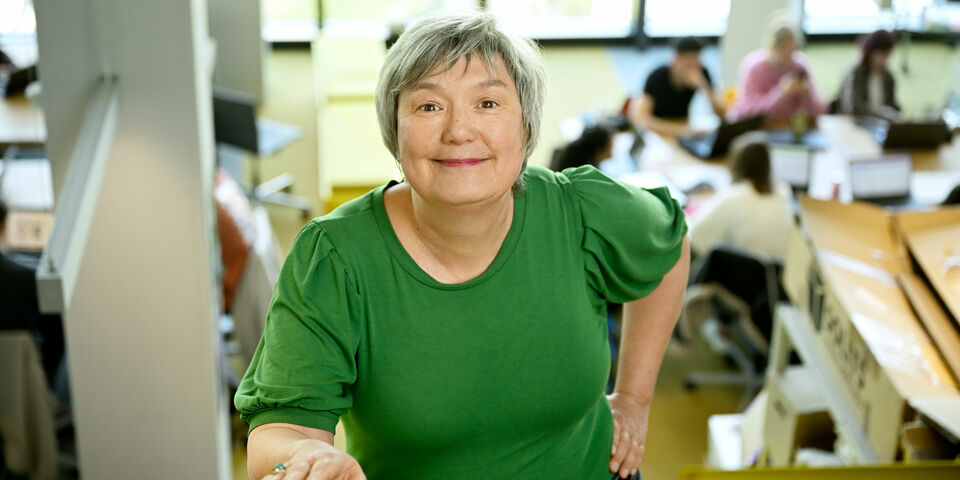Rusk with 'Muisjes'
“Have you had a rusk yet?” I am eating soup with a colleague in the main hall of Atlas, when two students come up from behind with a large plate of rusks covered with blue and white topping. One has a stack of papers in his hand. Do I have to do something again?
I've already voted for the top 2000, signed an online protest against the execution of a schizophrenic man in America, earned a cup of hot chocolate with my social safety suggestion in our temporary WinTU/er Village, stood in line for a warm stroopwafel, claimed my Christmas present at the counter, and I just managed to save a slip of paper (good for a glühwein or a hot chocolate) from the paper bin for yet another hot beverage.
Little discipline and lots of sweet cravings is a bad combination when you want to limit your sugar intake. Especially at TU/e where there's always a party or a birthday to celebrate. But I hadn't had a rusk with Muisjes yet (Dutch biscuit with sugared anis crisps; it's a Dutch tradition to serve these whenever a baby's been born, Ed.)
“And to what do we owe this?”, I ask aloud. My colleague is quicker: there is a Christmas baby on the way. And indeed, the students are from student association Ichtus and are handing out rusks in the WinTU/er Village in honor of the one who is the reason for all these festivities.
Along with this snack comes a request, “Would you also like to write a card for someone who is lonely during Christmas?” For a rusk with Muisjes, I am happy to. But also because I find it such a sympathetic gesture. Beautiful in all its simplicity: two students who have started their own initiative and seem to find it a bit exciting to hand out rusks to strangers, but do it anyway.
Moments later, I am sitting at my desk staring at the blank card. Writing a card when you don't know the recipient is also a bit exciting. But I did it. Now it's time to put on my ugly Christmas sweater and head to the end-of-year party with my colleagues.


Discussion